|
Books Should Be Free Loyal Books Free Public Domain Audiobooks & eBook Downloads |
|
|
Books Should Be Free Loyal Books Free Public Domain Audiobooks & eBook Downloads |
|
Literature |
|---|
|
Book type:
Sort by:
View by:
|
By: Frank Norris (1870-1902) | |
|---|---|
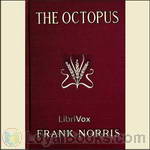 The Octopus
The Octopus
Frank Norris based his 1901 novel The Octopus (A Story of California) on the Mussel Slough Tragedy of 1880, a bloody conflict between ranchers and agents of the Southern Pacific Railroad. The central issue was over the ownership of the ranches, which the farmers had leased from the railroad nearly ten years earlier with intentions of eventually purchasing the land. Although originally priced at $2.50 to $5 per acre, the railroad eventually opened the land for sale at prices adjusted for land improvements; the railroad’s attempts to take possession of the land led the ranchers to defend themselves as depicted in the book. | |
By: Frank Pinkerton | |
|---|---|
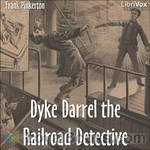 Dyke Darrel the Railroad Detective
Dyke Darrel the Railroad Detective
Dyke Darrel investigates an audacious train robbery that included the murder of a friend, and embarks on a man-hunt. High Victorian serial melodrama at its best! | |
By: Frank R. Stockton (1834-1902) | |
|---|---|
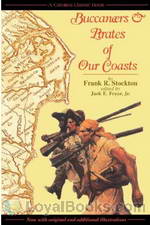 Buccaneers and Pirates of Our Coasts
Buccaneers and Pirates of Our Coasts
Buccaneers and Pirates of our Coasts is a non-fiction, rolicking story of the origins of piracy and of the famous pirates of the coasts of the United States. The stories don’t cast pirates in the glowing light of modern day renditions – in Stockton’s stories, pirates are bad guys! – but the dramatic style makes them good fun to read, anyway! (Summary by Sibella Denton) | |
 The Bee-Man of Orn and Other Fanciful Tales
The Bee-Man of Orn and Other Fanciful Tales
A collection of nine enchanting short stories filled with curious beasts and unexpected endings. Included are The Bee-Man of Orn; The Griffin and the Minor Canon; Old Pipes and the Dryad; The Queen's Museum; Christmas Before Last: Or, The Fruit of the Fragile Palm; Prince Hassak's March; The Battle of the Third Cousins; The Banished King; and The Philopena | |
By: Frank Richard Stockton | |
|---|---|
 Round-about Rambles
Round-about Rambles
ROUND-ABOUT RAMBLES, In Lands of FACT AND FANCYBY FRANK R STOCKTONPREFACECome along, boys and girls! We are off on our rambles. But please do not ask me where we are going. It would delay us very much if I should postpone our start until I had drawn you a map of the route, with all the stopping-places set down. We have far to go, and a great many things to see, and it may be that some of you will be very tired before we get through. If so, I shall be sorry; but it will be a comfort to think that none of us need go any farther than we choose... | |
By: Frank Stockton (1834-1902) | |
|---|---|
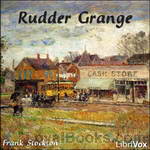 Rudder Grange
Rudder Grange
This book presents a number of short, comedic sketches of a country life in middle America in the late 1800s. The hilarious twists and turns endear our adorable, naive married couple to the reader; and the orphan servant Pomona – dear, odd, funny Pomona! – is the focus of several of the stories. Imagine a honeymoon in a lunatic asylum, and you’ve got Rudder Grange! | |
By: Frank Wedekind (1864-1918) | |
|---|---|
 Earth Spirit
Earth Spirit
Earth Spirit (1895) (Erdgeist) is a play by the German dramatist Frank Wedekind. It forms the first part of his pairing of 'Lulu' plays (the second is Pandora's Box [1904]), both of which depict a society "riven by the demands of lust and greed". Together with Pandora's Box, Wedekind's play formed the basis for the silent film Pandora's Box (1929) starring Louise Brooks and the opera Lulu by Alban Berg in 1935 (premiered posthumously in 1937). The eponymous "earth spirit" of this play is Lulu, who Wedekind described as a woman "created to stir up great disaster... | |
By: Frank Williams (1887-?) | |
|---|---|
 The Harbor of Doubt
The Harbor of Doubt
Young Code Schofield had lost his schooner May Schofield in an Atlantic gale a few months ago, and now the townspeople on the small island of Grande Mignon off the coast of New Brunswick were beginning to talk suspiciously of the events surrounding that loss. Insurance investigators have been summoned to investigate, friends are alienating themselves from Code, and he finds himsef challenged by even those he's known and trusted his whole life. Does Code Schofield have anything to prove, and if so, to whom, and why? | |
By: Franz Kafka (1883-1924) | |
|---|---|
 Metamorphosis (version 4)
Metamorphosis (version 4)
This story, about a man who wakes up transformed into a bug and the repercussions it has on his life and the people around him, has intrigued me for many years. The translation is by Ian Johnston, not the translator that is in Gutenberg; I like Johnston's more. What does it mean? [Spoiler possibly]In my mind it is not complicated at all and is most probably an autobiography of how Kafka himself had experienced his early life living with his parents. Kafka describes how he had experienced his parents’ financial and emotional exploitation's of him, to the point of detaching from them and thereby ceasing to be their son ... | |
 Metamorphosis (version 3)
Metamorphosis (version 3)
The Metamorphosis (German: Die Verwandlung, also sometimes translated as The Transformation) is a novella by Franz Kafka, first published in 1915. It has been cited as one of the seminal works of fiction of the 20th century and is studied in colleges and universities across the Western world. The story begins with a traveling salesman, Gregor Samsa, waking to find himself transformed (metamorphosed) into a large, monstrous insect-like creature. The cause of Samsa's transformation is never revealed, and Kafka never did give an explanation... | |
By: Frederic Taber Cooper (1864-1937) | |
|---|---|
 Some American Storytellers
Some American Storytellers
Frederic Taber Cooper, who was an editor and author, provides a superb insight into the works of some of the most popular authors of the turn of the century decade. Excerpt: The subjects of the essays included in this volume differ widely in aim and in accomplishment; but all of them possess, to a considerable extent, the gift that makes them next of kin to the minstrel and troubadour, to the ancient fabulist, and to the forgotten spinner of the world s first nursery tales, the gift of holding the attention by the spell of the spoken word. - Summary by Celine Major | |
By: Frederick Philip Grove (1879-1948) | |
|---|---|
 Settlers of the Marsh
Settlers of the Marsh
The novel “Settlers of the Marsh” is a foundational work of realism in Canadian fiction. Its author, Frederick Philip Grove, a German immigrant, settled in Manitoba and wrote vividly about the struggles of settlers in the early multi-ethnic communities of western Canada. The protagonist of “Settlers of the Marsh” is a Swedish immigrant who wrestles in stoic solitude with the hardships of pioneer life, only to discover that he has been catastrophically naïve about relations with women. Some early reviewers objected that the novel’s treatment of sexuality was “indecent,” but the book is today seen as a cornerstone of Canadian literature. - Summary by Bruce Pirie | |
By: Frederick Arnold Kummer (1873-1943) | |
|---|---|
 Film of Fear
Film of Fear
(Written under the pseudonym, Arnold Fredericks.) Ruth Morton is a world-renowned film actress who seems to have it all: youth, beauty, wealth, and a viable career. But she soon becomes the target of a malicious stalker who begins sending her a series of cryptic threats. Dismissed at first, the stalker soon emerges as a legitimate -- and mysterious -- threat. She soon must call for the services of Richard and Grace Duvall, a husband and wife detective team who soon find themselves ensnared in a mystery where everyone soon becomes a target. | |
By: Frederick Marryat (1792-1848) | |
|---|---|
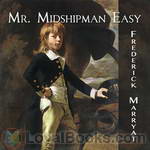 Mr. Midshipman Easy
Mr. Midshipman Easy
One of the first novel-length pieces of nautical fiction, MR. MIDSHIPMAN EASY (1836) is a funny and easygoing account of the adventures of Jack Easy, a son of privilege who joins the Royal Navy. The work begins as a satire on Jack’s attachment to “the rights of man” that may try the listener’s patience. But despair not, for the story soon settles down as the philosophical midshipman begins his many triumphs over bullies, foul weather, and various damned foreigners of murderous intent.Caveat audiens: This novel employs racial/ethnic epithets and religious stereotypes, as well as taking a rather sunny view of supply-side economics... | |
 Jacob Faithful
Jacob Faithful
Rebelling against the career chosen for him by his wealthy family, Frederic Marryat joined the Royal Navy in 1806 at the age of 14. He first served as a midshipman in the 38-gun frigate "HMS Imperieuse" commanded by Lord Cochran, 10th Earl of Dundonald whose real life exploits were used by Marryat in his fiction and which formed the basis for other famous fictional characters like Horatio Hornblower and Jack Aubrey. Having survived more than 50 sea battles and attained the rank of Post Captain, he resigned from the Navy and devoted the rest of his life to writing, drawing a good deal on his distinguished career in the Navy and is now considered the Father of Modern Nautical Fiction... | |
 Snarleyyow
Snarleyyow
This is a quite amusing nautical tale of the British Navy of the around the year 1700. While, as with much early 'humor', it is somewhat heavy-handed, the sympathies of the author are clear and good, and cruelty is often averted by good fortune or background characters. First published under the title 'The Dog Fiend', the primary characters are an evil captain of a cutter and his dog. The dog seems indestructible, as is the poor cabin boy who is the butt of the captain's ill humor, and who often is chewed on by the dog... | |
 Naval Officer, or Scenes in the Life and Adventures of Frank Mildmay
Naval Officer, or Scenes in the Life and Adventures of Frank Mildmay
Marryat was a midshipman under Captain Cochrane and this, his first naval adventure, is considered to be a highly autobiographical telling of his adventures with one of Britain's most famous and daring naval captains. | |
By: Frederick O. Bartlett (1876-1945) | |
|---|---|
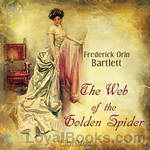 The Web of the Golden Spider
The Web of the Golden Spider
The Web of the Golden Spider is a tale of mystery, intrigue and adventure that begins in the city, progresses to a mutinous open sea voyage, eventually leading to the remotest areas on the slopes of the Andes of South America. Wilson, our hero, finds himself in the midst of a battle between a deposed queen and revolutionists who have banded together in an effort to bring their country together as a republic. Wilson, although torn between helping mercenaries, freedom fighters and revolutionaries, is more concerned with the rescuing of the girl he has fallen in love with, but who has been snatched from him by a mysterious priest... | |
By: Frederik Pohl | |
|---|---|
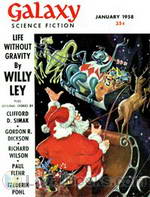 The Knights of Arthur
The Knights of Arthur
Sailors Sam Dunlap and Arthur check in to a New York hotel to await their mate Vern Engdahl when a girl shows up proposing to purchase Arthur. They need guys like Arthur to help run the city, and the fact that he fits in a small suitcase is even better. – The Knights of Arthur was first published in the January 1958 edition of Galaxy Science Fiction magazine. | |
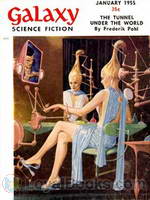 Tunnel Under The World
Tunnel Under The World
This famous Pohl story explores cybernetic robots and implanted personalities in a way that certainly expanded my way of looking at reality. Is that wall really real? or is it just kinda, sorta real? And who am I? The protagonist, Guy Burckhardt, wakes up screaming from a horrible dream of explosions, searing fire, choking gas and other terrible ways to die. But he wakes up so it must have been just a bad nightmare, right? To find out that piece of information you will need to listen to this inventive and scary story. | |
By: Frederika Richardson Macdonald | |
|---|---|
 Secret of Charlotte Brontë
Secret of Charlotte Brontë
Twenty years ago, now, I attempted (but was not especially successful in the task) to establish upon the personal knowledge that my own residence as a pupil in the historical Pensionnat in the Rue d'Isabelle, at Bruxelles gave me of the facts of Charlotte Brontë's relationships to Monsieur and Madame Heger, right impressions about the experiences and emotions she underwent between 1842 and 1846, and that supply the key and clue to the right interpretation of her genius. Every opinion I then ventured... | |
By: Friedrich de La Motte-Fouqué (1777-1843) | |
|---|---|
 Undine
Undine
Undine is a novel by Friedrich de la Motte Fouqué concerning Undine, a water spirit who marries a Knight named Huldebrand in order to gain a soul. It is an early German romance, which has been translated into English and other languages. The novel served as inspiration for two operas in the romantic style by Ernst Theodor Amadeus Hoffmann and Albert Lortzing, respectively, and two ballets: the nineteenth century Ondine and the twentieth century Undine. An edition of the book was illustrated by Arthur Rackham... | |
By: Friedrich Nietzsche (1844-1900) | |
|---|---|
 Case of Wagner / Nietzsche Contra Wagner / Selected Aphorisms
Case of Wagner / Nietzsche Contra Wagner / Selected Aphorisms
A collection of three of Nietzsche's writings concerning the music of Wagner. In particular, he relates Wagner's music as degenerate, unrefined and unintelligent and relates it to a gradually degenerating German culture and society. The translator provides a detailed introduction. | |
 Birth of Tragedy
Birth of Tragedy
In this famous early work of German philosopher Friedrich Nietzsche, he investigates the artistic characteristics of Apollonian and Dionysian characteristics in Greek art, specifically in Greek tragedy as it evolved. Then he applies his conclusions about Greek tragedy to the state of modern art, especially modern German art and specifically to the operas of Richard Wagner. | |
By: Friedrich Schiller (1759-1805) | |
|---|---|
 Mary Stuart
Mary Stuart
Schiller's tragedy depicts the final days of Mary, Queen of Scots, who has been imprisoned by her cousin, Queen Elizabeth I, because of her potential claim on the English throne. The action of the play revolves around an attempt to rescue Mary from prison and Elizabeth's indecision over whether or not to have her executed. The 1801 translation is by Joseph Mellish, a friend of Schiller's. | |
 Love and Intrigue
Love and Intrigue
Ferdinand is an army major and son of President von Walter, a high-ranking noble in a German duke's court, while Luise Miller is the daughter of a middle-class musician. The couple fall in love with each other, but both their fathers tell them to end their affair. The President instead wants to expand his own influence by marrying Ferdinand to Lady Milford, the duke's mistress, but Ferdinand rebels against his father's plan and tries to persuade Luise to elope with him. | |
 Camp of Wallenstein
Camp of Wallenstein
This is the first play of Friedrich Schiller's Wallenstein Trilogy. Set in a Bohemian camp during the Thirty Years War, it introduces the major characters of the rest of the trilogy, like Albrecht von Wallenstein and Max Piccolomini, from their subordinates' point of view. | |
By: Fritz Leiber (1910-1992) | |
|---|---|
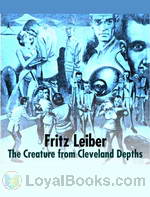 The Creature from Cleveland Depths
The Creature from Cleveland Depths
“The Creature from Cleveland Depths” also known as “The Lone Wolf” tells the story of a writer and his wife who refuse to move below-ground after the cold-war gets hot. The underground society discovers a decline in their ability to creatively innovate, and must consult with surface dwellers to develop products that satiate the needs of a people living like moles. But the latest product to result from this alliance, “The Tickler” has frightening implications that only our heroes seem to notice. – This story appeared in the December, 1962 issue of “Galaxy” magazine. | |
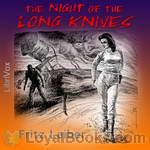 The Night of the Long Knives
The Night of the Long Knives
"I was one hundred miles from Nowhere—and I mean that literally—when I spotted this girl out of the corner of my eye. I'd been keeping an extra lookout because I still expected the other undead bugger left over from the murder party at Nowhere to be stalking me." In a Post apocalyptic world, the few people left must be strong. And must not hesitate to kill. Of course, killing another Deathlander was one of the chief pleasures and urges of all the solitary wanders in this vast wasteland. Kill and kill again. But this other was a girl and that brought up the second great urge: sex. Which was it to be today? Perhaps both? | |
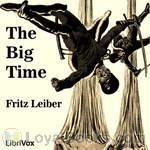 The Big Time
The Big Time
A classic locked room mystery, in a not-so-classic setting. (Intro by Karen Savage) | |
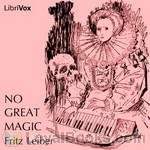 No Great Magic
No Great Magic
They were a traveling group of Shakespearean players; perfectly harmless, right? Wrong. For one thing, why did they have spacemen costumes in their wardrobes, right next to caveman ones? Why was the girl in charge of backstage suffering from amnesia and agoraphobia? No Great Magic is needed to perform the plays they put on, but sometimes great science. No matter where, or when. | |
 Three Science Fiction Stories by Fritz Leiber
Three Science Fiction Stories by Fritz Leiber
The Moon is Green, Bread Overhead and What's He Doing In There?! Three of the best known and loved Science Fiction short stories by the wonderful Fritz Lieber. Always tongue in cheek, and always with a funny twist, Leiber deftly shows how humans will adapt to or mess up the future. In ways that only humans can. | |
By: Fyodor Dostoyevsky (1821-1881) | |
|---|---|
 Crime and Punishment
Crime and Punishment
A mysterious crime is being plotted in a tiny garret above a dilapidated apartment building in St Petersburg in Russia. The plotter, Rodion Raskolinikov, is a poor student who has delusions of ridding the world of “worthless vermin” and counter balancing these crimes with good deeds. He commits a murder to test his own theories and prove that crime comes naturally to the human species. Crime and Punishment is a path-breaking novel of ideas that changed the course of novel writing in the 20th century... | |
 The Brothers Karamazov
The Brothers Karamazov
Set in 19th century Russia, The Brothers Karamazov (Russian: Братья Карамазовы) is the last novel written by the illustrious author Fyodor Dostoyevsky who died a few months before the book's publication. The deeply philosophical and passionate novel tells the story of Fyodor Karamazov, an immoral debauch whose sole aim in life is the acquisition of wealth. Twice married, he has three sons whose welfare and upbringing, he cares nothing about. At the beginning of the story, Dimitri Karamazov, the eldest son who is now a twenty-eight year old war veteran, returns to his home town to claim the inheritance left to him by his dead mother... | |
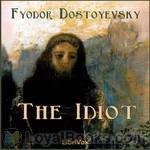 The Idiot
The Idiot
The extraordinary child-adult Prince Myshkin, confined for several years in a Swiss sanatorium suffering from severe epilepsy, returns to Russia to claim his inheritance and to find a place in healthy human society.The teeming St Petersburg community he enters is far from receptive to an innocent like himself, despite some early successes and relentless pursuit by grotesque fortune-hunters. His naive gaucheries give rise to extreme reactions among his new acquaintance, ranging from anguished protectiveness to mockery and contempt... | |
 Landlady
Landlady
Everything changed when Ordynov, a secluded young thinker, stepped out of his old lodgings in search of another corner. The ailing landlord watched from a distance, while the beautiful landlady came close... A tale of love, murder, and sorcery, The Landlady is one of a kind among Fyodor Dostoevsky's works. Written at the age of 26 before he was sent to Siberia, preceded only by The Double and Poor Folk, this novella draws inspiration from Russian folklore as well as stories by Pushkin and Gogol. It anticipates some of the writer's most important ideas to be developed in his later writings. | |
 Crocodile
Crocodile
Ivan Matveich, the most ordinary person you might hope to meet, is swallowed alive by a crocodile at a sideshow. Finding life inside the belly of the beast quite comfortable, he makes a home for himself there. His disquisitions on the state of the world from inside the crocodile make him quite a name for himself; while all the while the discussion rages outside as to whether the beast is going to be cut open to release him or not, its value as a sideshow attraction having massively increased owing to the presence of the human voice buried inside it. One of Jorge Luis Borges' seven most favourite stories. - Summary by Tony Addison | |
 Double: A Petersburg Poem (Version 2)
Double: A Petersburg Poem (Version 2)
In this classic novella, the life of a drab office clerk named Golyadkin begins to be haunted by his "doppelgänger," a man identical to him possessing all the charm and charisma Golyadkin lacks. This double shows up over and over again, succeeding in the things Golyadkin has failed to do throughout his life. As this double infiltrates himself more and more into Golyadkin's life, the reader is left wondering who he is and what his purposes might be. - Summary by Magda Wilde | |
 House of the Dead
House of the Dead
The House of the Dead is a novel published in 1861 by Russian author Fyodor Dostoyevsky, which portrays the life of convicts in a Siberian prison camp. Dostoyevsky himself spent four years in exile in such a camp following his conviction for involvement in the Petrashevsky Circle. This experience allowed him to describe with great authenticity the conditions of prison life and the characters of the convicts. The narrator, Aleksandr Petrovich Goryanchikov, has been sentenced to penalty deportation to Siberia and ten years of hard labour... | |
By: G. K. Chesterton (1874-1936) | |
|---|---|
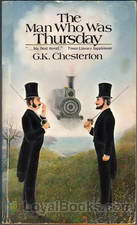 The Man Who was Thursday
The Man Who was Thursday
Two poets in a London park at sunset, debating on the attributes of poetry and whether it's really a metaphor for anarchy. A group that meets in secret, planning to overthrow the world order. Disguises and deceptions, ideals and ideology. A medley of themes and genres makes this a great read for anyone who's a fan of Chesterton and his iconic Father Brown. The Man Who Was Thursday includes Chesterton's favorite theme of Christianity with touches of delightful humor to enliven the twists and turns that abound throughout the book... | |
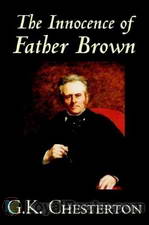 The Innocence of Father Brown
The Innocence of Father Brown
A Chief of Police hosts a dinner party for an American millionaire wishing to will his entire fortune to the Church of France. Jewels that have been stolen and recovered so many times that they're known colloquially by thieves as The Flying Stars. A murder committed by an invisible man. These and many others are the mysteries that are presented to the lovable, bumbling, stumpy Man of God, Father Brown. The Innocence of Father Brown, by G.K. Chesterton is a collection of eleven stories which marks the debut of this most unusual detective... | |
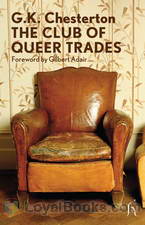 The Club of Queer Trades
The Club of Queer Trades
A collection of six wonderfully quirky detective stories, featuring the ‘mystic’ former judge Basil Grant. Each story reveals a practitioner of an entirely new profession, and member of the Club of Queer Trades. | |
 Eugenics and Other Evils
Eugenics and Other Evils
Most Eugenists are Euphemists. I mean merely that short words startle them, while long words soothe them. And they are utterly incapable of translating the one into the other, however obviously they mean the same thing. Say to them “The persuasive and even coercive powers of the citizen should enable him to make sure that the burden of longevity in the previous generation does not become disproportionate and intolerable, especially to the females”; say this to them and they will sway slightly to and fro like babies sent to sleep in cradles. Say to them “Murder your mother,” and they sit up quite suddenly. Yet the two sentences, in cold logic, are exactly the same.” | |
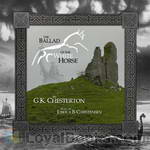 The Ballad of the White Horse
The Ballad of the White Horse
An English epic poem that follows the exploits of Alfred the Great in his defense of Christian civilization in England from the heathen nihilism of the North. Following a string of defeats at the hands of the invading Danes, a vision from heaven in the river island of Athelney fills Alfred with joy and hope. Though it gives no promise of victory in the coming struggle, it inspires him to rally his chieftains for a last stand against the invading hordes. His adventures lead throughout the country... | |
 Alarms and Discursions
Alarms and Discursions
Gilbert Keith Chesterton was an influential English writer of the early 20th century. His prolific and diverse output included journalism, philosophy, poetry, biography, Christian apologetics, fantasy, and detective fiction. Chesterton has been called the “prince of paradox.” He wrote in an off-hand, whimsical prose studded with startling formulations. Chesterton wrote about 4000 essays on various subjects, and “Ararms and Discursions is one of his collections. | |
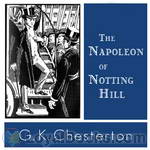 The Napoleon of Notting Hill
The Napoleon of Notting Hill
While the novel is humorous (one instance has the King sitting on top of an omnibus and speaking to it as to a horse: “Forward, my beauty, my Arab,” he said, patting the omnibus encouragingly, “fleetest of all thy bounding tribe”), it is also an adventure story: Chesterton is not afraid to let blood be drawn in his battles, fought with sword and halberd in the London streets, and Wayne thinks up a few ingenious strategies; and, finally, the novel is philosophical, considering the value of one man’s actions and the virtue of respect for one’s enemies. | |
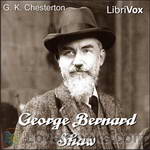 George Bernard Shaw
George Bernard Shaw
Chesterton and Shaw were famous friends and enjoyed their arguments and discussions. Although rarely in agreement, they both maintained good-will towards and respect for each other. However, in his writing, Chesterton expressed himself very plainly on where they differed and why. In Heretics he writes of Shaw: “After belabouring a great many people for a great many years for being unprogressive, Mr. Shaw has discovered, with characteristic sense, that it is very doubtful whether any existing human being with two legs can be progressive at all... | |
 Manalive
Manalive
The flying blast struck London just where it scales the northern heights, terrace above terrace, as precipitous as Edinburgh. It was round about this place that some poet, probably drunk, looked up astonished at all those streets gone skywards, and (thinking vaguely of glaciers and roped mountaineers) gave it the name of Swiss Cottage, which it has never been able to shake off. At some stage of those heights a terrace of tall gray houses, mostly empty and almost as desolate as the Grampians, curved... | |
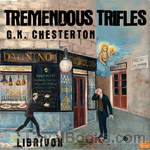 Tremendous Trifles
Tremendous Trifles
“None of us think enough of these things on which the eye rests. But don’t let us let the eye rest. Why should the eye be so lazy? Let us exercise the eye until it learns to see startling facts that run across the landscape as plain as a painted fence. Let us be ocular athletes. Let us learn to write essays on a stray cat or a coloured cloud. I have attempted some such thing in what follows; but anyone else may do it better, if anyone else will only try. ” (Gilbert Keith Chesterton) | |
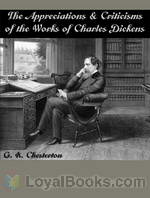 The Appreciations and Criticisms of the Works of Charles Dickens
The Appreciations and Criticisms of the Works of Charles Dickens
“These papers were originally published as prefaces to the separate books of Dickens in one of the most extensive of those cheap libraries of the classics which are one of the real improvements of recent times. Thus they were harmless, being diluted by, or rather drowned in Dickens. My scrap of theory was a mere dry biscuit to be taken with the grand tawny port of great English comedy; and by most people it was not taken at all–like the biscuit. Nevertheless the essays were not in intention so aimless as they appear in fact... | |
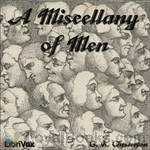 A Miscellany of Men
A Miscellany of Men
Gilbert Keith Chesterton was among the world’s most prolific writers who incorporated relentless logic, wonderful humor, and a clear view of truth into an amazing tool for exposing the foolishness of the policies of the world around him through the device of paradox.It is always great fun, and certainly always a learning experience to read Chesterton. A Miscellany of Men may be his hardest work to define, as it deals with a huge array of issues, using “personal types” as illustration. It would... | |
 The Trees of Pride
The Trees of Pride
Three trees, known as the Peacock trees, are blamed by the peasants for the fever that has killed many. Squire Vane scoffs at this legend as superstition. To prove them wrong, once and for all, he takes a bet to spend the night in the trees. In the morning he has vanished. Is he dead, and if so who has killed him? The poet? The lawyer? The woodsman? The trees? | |
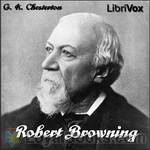 Robert Browning
Robert Browning
There is an old anecdote, probably apocryphal, which describes how a feminine admirer wrote to Browning asking him for the meaning of one of his darker poems, and received the following reply: “When that poem was written, two people knew what it meant–God and Robert Browning. And now God only knows what it means. | |
 Magic: A Fantastic Comedy
Magic: A Fantastic Comedy
| |
By: Garrett P. Serviss (1851-1929) | |
|---|---|
 Edison's Conquest of Mars
Edison's Conquest of Mars
Edison’s Conquest of Mars, by Garrett P. Serviss, is one of the many science fiction novels published in the nineteenth century. Although science fiction was not at the time thought of as a distinct literary genre, it was a very popular literary form, with almost every fiction magazine regularly publishing science fiction stories and novels. “Edison’s Conquest of Mars” was published in 1898 as an unauthorized sequel to H. G. Wells’s The War of the Worlds, but did not achieve the fame of its predecessor. The book was endorsed by Thomas Edison, the hero of the book — though not by Wells. | |
By: Gaston Leroux (1868-1927) | |
|---|---|
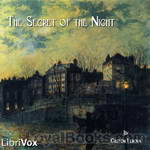 The Secret of the Night
The Secret of the Night
Gaston Leroux, perhaps best known as the author of The Phantom of the Opera in its novel form, was also the author of a popular series of mystery novels featuring a young journalist cum detective named Joseph Rouletabille. It is most likely that Leroux styled his hero after himself. Rouletabille was in the tradition of other great detectives who solved their cases by pure deductive reasoning. Much as Sherlock Holmes, who eliminated the impossible and concluded that whatever remained, however improbable must be the truth, Rouletabille included the known facts about the case and eliminated everything that was not a known fact, no matter how much it appeared to relate to the case... | |
By: Gene Stratton-Porter (1863-1924) | |
|---|---|
 Michael O'Halloran
Michael O'Halloran
The story of a plucky, optimistic newsboy, Michael O’Halloran, who has been orphaned from a young age and asks nothing of the world but to “Be Square!” This is a warm and joyous story of how Michael makes life sunnier for those around him, bringing joy to all who know him. | |
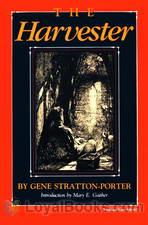 The Harvester
The Harvester
The Harvester is one of Gene Stratton-Porter’s romantic novels which combine a love of nature, high moral ideals and a good plot. This is the story of a young man who lives in the country side with his dog and other animals and grows herbs to sell to medical drug supply houses. One evening, he has a vision of his Dream Girl and this is the story of his search for her and what happens when he finds her. | |
 Freckles
Freckles
Freckles is a young man who has been raised since infancy in a Chicago orphanage. His one dream is to find a job, a place to belong and people who accept him despite his youth and the disability of having only one hand. He finds this place in the Limberlost Swamp, as Mr. McLean’s Limberlost guard of precious timber.In the process, he discovers a love for the wilderness and animals he encounters every day on his rounds and a burning desire to learn about all the new birds and plants he sees on his rounds every day... | |
 A Daughter of the Land
A Daughter of the Land
Independent Kate Bates resents the fact that, as the youngest of a large family, she is expected to stay at home and help her parents while her brothers and sisters are free to pursue their desires. When she defies her family and leaves home, she finds that the path to independence is paved with hardships. | |